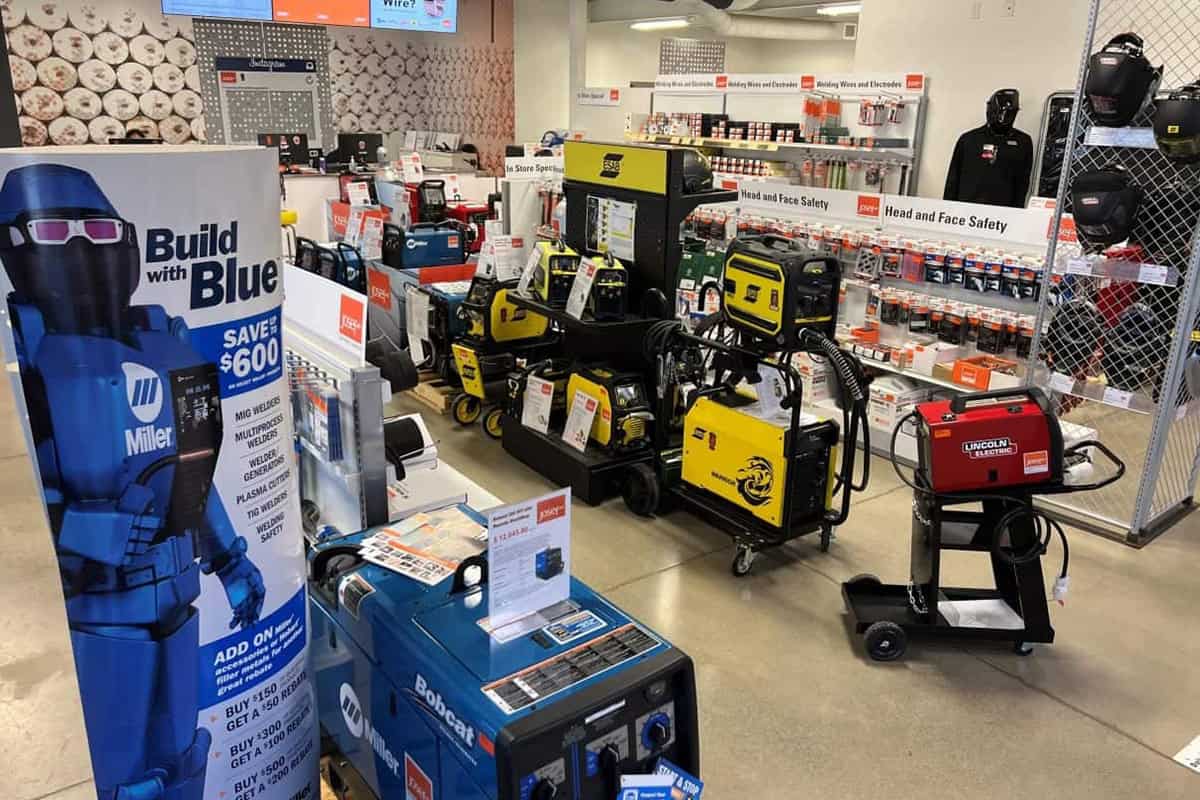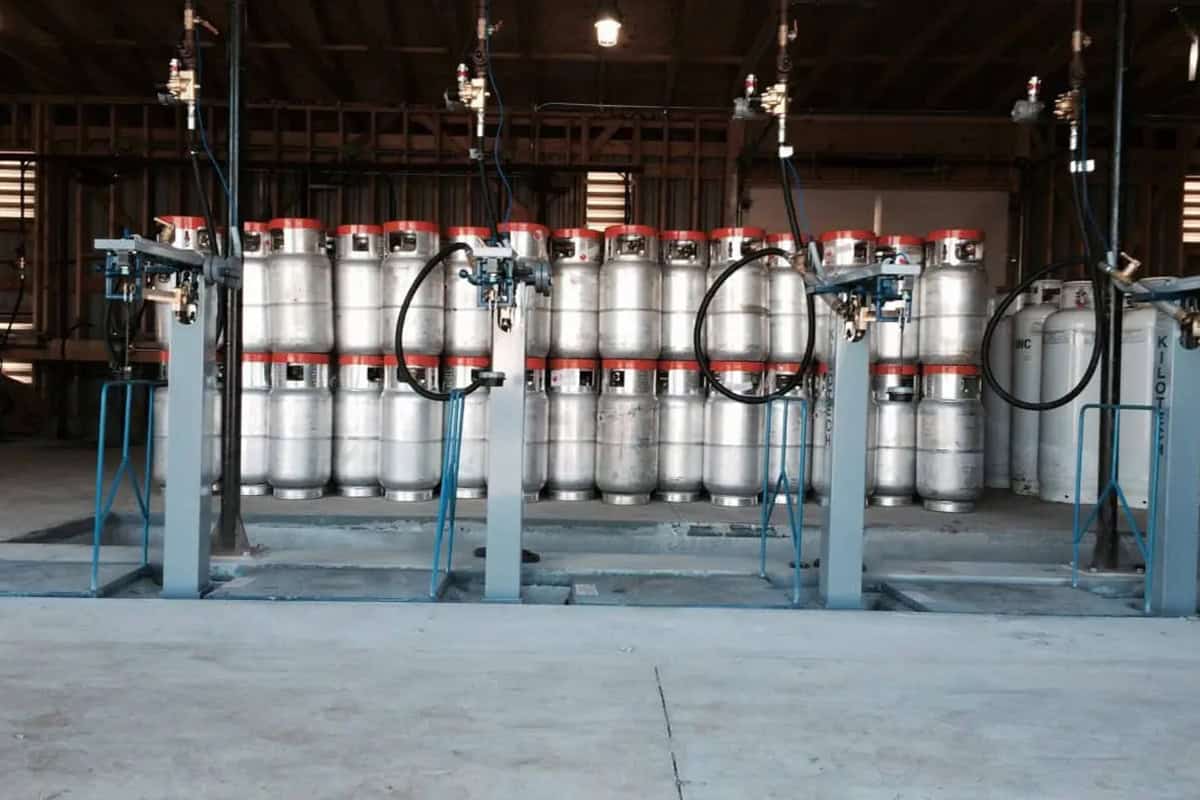Top 12 Forklift Propane Safety Tips for Toronto’s Industrial Workers
August 1, 2025 3:49 pmOperating a propane-powered forklift is a critical part of many industrial operations throughout Toronto’s busy manufacturing and distribution hubs. These machines provide the power and mobility needed to move heavy materials, but their fuel source, liquid propane (LP), requires careful and precise handling. The safety of every person on the shop floor hinges on a solid understanding of this fuel. Improper handling of forklift propane can lead to serious risks, including explosions, fires, and dangerous leaks. A commitment to safe practices not only protects individuals but also ensures smooth, uninterrupted business operations. By following established guidelines and using the right supplies, companies can create a secure environment for everyone involved.
Every day, workers across the city rely on their equipment to get the job done. The proper use of forklift propane in Toronto is an integral part of this daily rhythm, but it’s important to remember that safety is not a one-time lesson. It’s an ongoing process that requires constant attention to detail and regular refresher training. This guide outlines the most important safety tips for anyone who handles or works near propane forklifts. From the moment a tank is exchanged to its secure storage, these steps are designed to keep workers in Toronto and the Greater Toronto Area safe.
1. Wear Proper Protective Gear
Always wear personal protective equipment (PPE) when handling propane tanks. The propane inside a tank is extremely cold. If liquid propane touches bare skin, it can cause severe frostbite. Gloves made from heavy-duty rubber or neoprene are a must to protect your hands. Wrap-around safety glasses or a face shield will protect your eyes from any escaping liquid or vapour.
2. Park the Forklift in a Safe Zone
When it’s time to change a propane tank, move the forklift to a designated area. This location should be well-ventilated, preferably outdoors, and far from any potential ignition sources. Make sure the ground is flat and level to prevent the forklift from rolling. Set the forks down, put the controls in neutral, and engage the parking brake before getting off the machine.
3. Shut Down the Engine Before Changing Tanks
Never attempt to change a propane tank while the forklift is still running. First, close the valve on the tank. Allow the engine to run until it uses up all the remaining fuel in the line and shuts off on its own. Turn the ignition key to the ‘off’ position after the engine has stopped.
4. Inspect the Tank for Damage
Before you attach a new tank, give it a careful once-over. Look for dents, rust, or any signs of damage to the tank itself. Check the valve and the O-ring for any visible wear or debris. A damaged tank should never be used. Set it aside immediately and tag it for repair or disposal by a qualified professional.
5. Handle Tanks with Care
Propane tanks are heavy and can be awkward to handle. Lift them using both hands and use a proper lifting technique to avoid back injuries. Do not roll, drop, or drag tanks. This can cause damage to the tank or its valve, leading to a leak. Ensure the tank is properly aligned with the locator pin on the forklift. This ensures the pressure relief valve is positioned correctly and the hose connects without strain.
6. Check Connections for Leaks
After connecting the new tank, open the valve slowly. Listen for any hissing sounds, which could indicate a leak. A brief hiss is normal as the line pressurizes, but a continuous sound is a problem. A simple and reliable way to check for leaks is with a soapy water solution. Apply the solution to the valve and connections with a brush. If bubbles form, you have a leak. If a leak is found, close the valve, disconnect the tank, and reconnect it, ensuring the fittings are clean and correctly seated. If the leak persists, do not use the tank.
7. Store Cylinders Safely and Correctly
Empty and full propane cylinders must be stored upright in a designated, secure cage. The storage area should be well-ventilated and located away from heat sources, electrical equipment, or open flames. Secure the tanks to prevent them from tipping over. This practice not only prevents accidents but also helps maintain a clean and orderly workspace.
8. Don’t Over-tighten Valves
Hand-tighten the connections to the tank; do not use tools. Using a wrench can cause damage to the fittings, leading to leaks. The valves are designed to be tightened by hand and should be snug but not forced.
9. Know the Signs of a Leak
Propane is odourless on its own, but a chemical is added to give it a strong, rotten-egg smell. If you smell this odour, hear a hissing noise, or see a build-up of white frost on the tank or fittings, there is a leak. If you suspect a leak, turn off the tank valve, move the forklift to a well-ventilated area, and contact a professional.
10. Ensure Proper Ventilation
Propane-powered forklifts are suitable for indoor use, but only in well-ventilated spaces. Operating them in a confined area can lead to a buildup of carbon monoxide and other exhaust gases, which are a serious health risk. Use carbon monoxide detectors and ensure that your ventilation systems are working correctly, as this is vital for the safety of your whole team.
11. Regular Maintenance is Key
Properly maintained equipment is safer and more reliable. Regularly inspect the forklift’s fuel system, hoses, and connections for any signs of wear or damage. Make sure the engine is tuned up to minimize harmful emissions. A robust maintenance schedule is a vital component of workplace safety.
12. Get Expert Training
All employees who handle forklift propane should receive thorough training. This training must cover safe handling procedures, leak detection, emergency responses, and proper storage. Knowledgeable workers are the first line of defence against accidents.
For a reliable supply of forklift propane in Toronto and all the related safety products, consider working with a company that puts safety first.
Prioritizing safety when working with forklift propane in Toronto is an essential part of responsible industrial operations. The recommendations outlined here, from proper PPE to regular maintenance and training, create a robust safety framework that protects individuals and the business as a whole. A safe workplace is a productive workplace. By instilling these habits in every employee, you can significantly reduce the risk of accidents and ensure that your team can focus on their jobs with confidence. The proper use of welding gas in Markham and reliable welding equipment in Toronto are just as critical, and the same safety principles apply across all your industrial gas needs.
Ultimately, a partnership with a trusted supplier is one of the smartest decisions a company can make. Beyond just providing gas, a good supplier offers guidance, support, and a commitment to your safety. Whether you require a consistent supply, recertification services, or advice on the right welding gas in Markham, a dedicated partner ensures your team is never without the resources and knowledge they need. To discuss your industrial gas requirements or to learn more about our safety services, please reach out to Josef Gases at (416) 658-1212.



